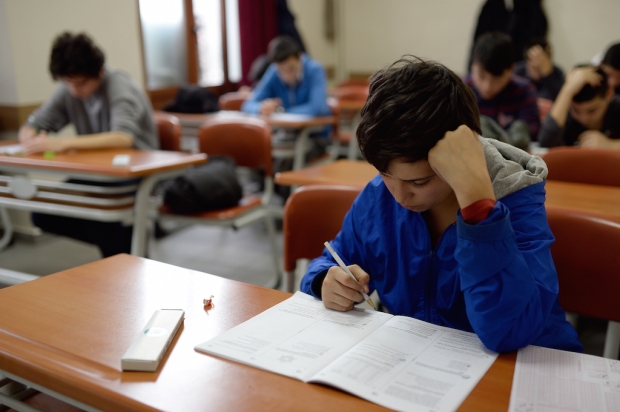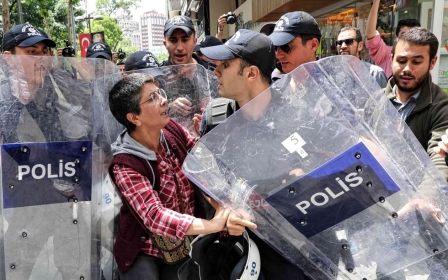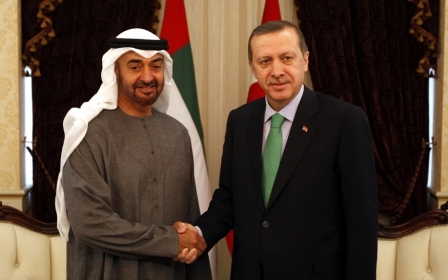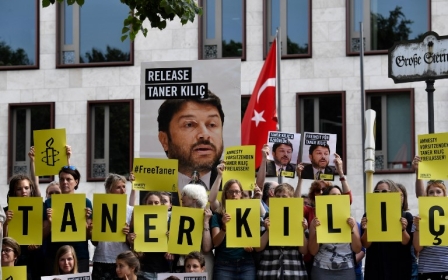Turkey to teach children true meaning of 'jihad' in schools
The concept of jihad as "love for one's country" will be included in the school syllabus as of next term, Turkey's education minister announced on Tuesday.
"Jihad exists in our religion. It is a part of it... the national education ministry's duty is to teach every concept according to the weight it carries and correctly," said Ismet Yilmaz at a news conference in Ankara.
"It is also our duty to correct the things that are perceived to be wrong or taught incorrectly."
"As part of this, jihad is included as part of basic religious education lessons."
Yilmaz also referred to the concept of "greater jihad," and said the term actually represents "love for one's country".
"Our prophet says we embark on a greater jihad after returning from a lesser one. What is this greater jihad? It is serving our society, increasing its welfare, ensuring calm in society and meeting society's needs," he said.
"The easiest thing is going to war and fighting, but what requires skill is to ensure peace, calm and development."
Yilmaz said there should be no discomfort at including jihad in the syllabus.
The announcement raised fears that the ruling AKP party has speeded up its process of trying to erode Turkey's secular system.
The new syllabus will also have a stronger focus on 15 July national unity day (the foiling of the coup plot) and the democratic gains that resulted. The topic will be covered as part of social studies lessons.
Yilmaz also linked the public's resistance to coup plotters on 15 July 2016 to the concept of jihad.
"One aspect of jihad is 15 July. The fact that the nation defended its own rights. Jihad is defending one's rights and observing the rights of others, and winning over hearts. These are all parts of the greater jihad," he said.
According to Egitim-Is, it will also decrease the focus on the secular-nationalist vision of Mustafa Kemal Ataturk, the founder of the modern Turkish republic.
The union dismissed the minister's claims that the syllabus was prepared in consultation with 100,000 people and said it reflected a copy prepared by a pro-government educators' union in its entirety.
"This syllabus has not been prepared properly procedurally as well. Such a deep-rooted change needed to include more participation, as well as to be done over a more extended period, including pilot programmes," Egitim-Is said in a statement.
Yilmaz said the syllabus reflected the "necessities appropriate to the era".
Egitim-Is called the syllabus a slide away from modern science-based education and a backtrack on the republic's values.
"The AKP throughout its time in power has ripped apart the syllabus, and with this deep-rooted change is making political moves rather than scientifically based ones. And as a result it is playing with the future of our children, hence our country," it said.
The ruling party's educational policies have come under scrutiny for attempting to erode contemporary education norms and become more religion-intensive.
Among the moves to come in for criticism are the increased value being placed on high schools that focus on providing religious Islamic education.
Another controversial move was an announcement in January that the theory of evolution would be scrapped from the syllabus because it was incompatible with the teachings of Islam.
Critics were furious and said even Iran, an Islamic theocracy, taught evolutionary theory.
Yilmaz on Tuesday said evolution theory would not be taught in schools and would be available in university courses for those studying philosophy.
This has raised fears that the Turkish president, Recep Tayyip Erdogan, and his AKP party have speeded up their process of trying to erode Turkey's secular system.
New MEE newsletter: Jerusalem Dispatch
Sign up to get the latest insights and analysis on Israel-Palestine, alongside Turkey Unpacked and other MEE newsletters
Middle East Eye delivers independent and unrivalled coverage and analysis of the Middle East, North Africa and beyond. To learn more about republishing this content and the associated fees, please fill out this form. More about MEE can be found here.





